Phonics skills improvement Normal Alphabet Worksheets for 7-Year-Olds
6 filtered results
-
From - To
Boost your child's reading fluency with our Phonics Skills Improvement Normal Alphabet Worksheets for 7-Year-Olds. Designed to enhance letter recognition and phonemic awareness, these engaging worksheets offer a variety of fun exercises to strengthen foundational reading skills. Kids will practice identifying sounds, blending phonemes, and decoding words, all while enjoying vibrant, age-appropriate activities. Perfect for classroom use or at-home learning, these worksheets provide the tools young learners need to build confidence and achieve reading success. Help your child unlock their reading potential with Kids Academy’s expertly crafted phonics worksheets.
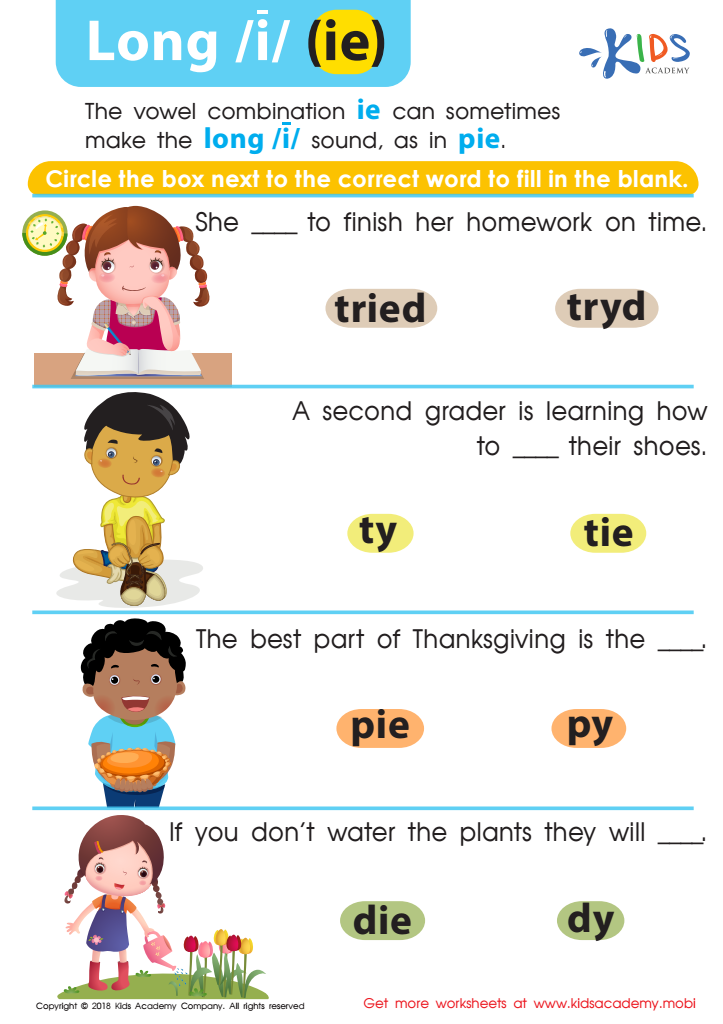

Reading: Long I and IE Worksheet
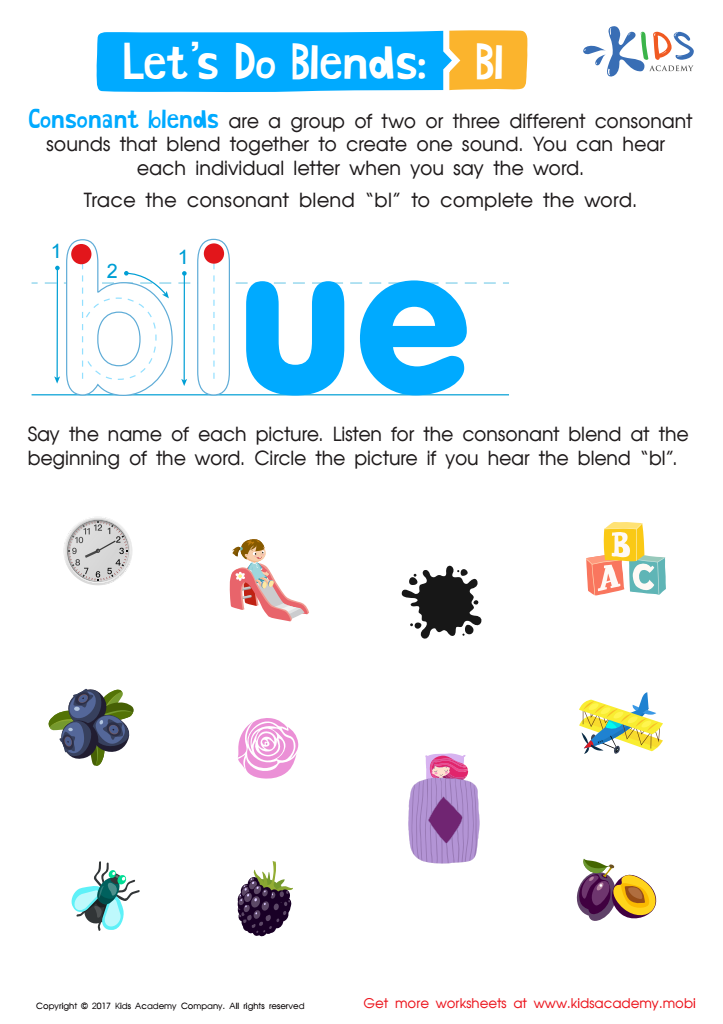

Beginning Blends: "Bl" Words Worksheet
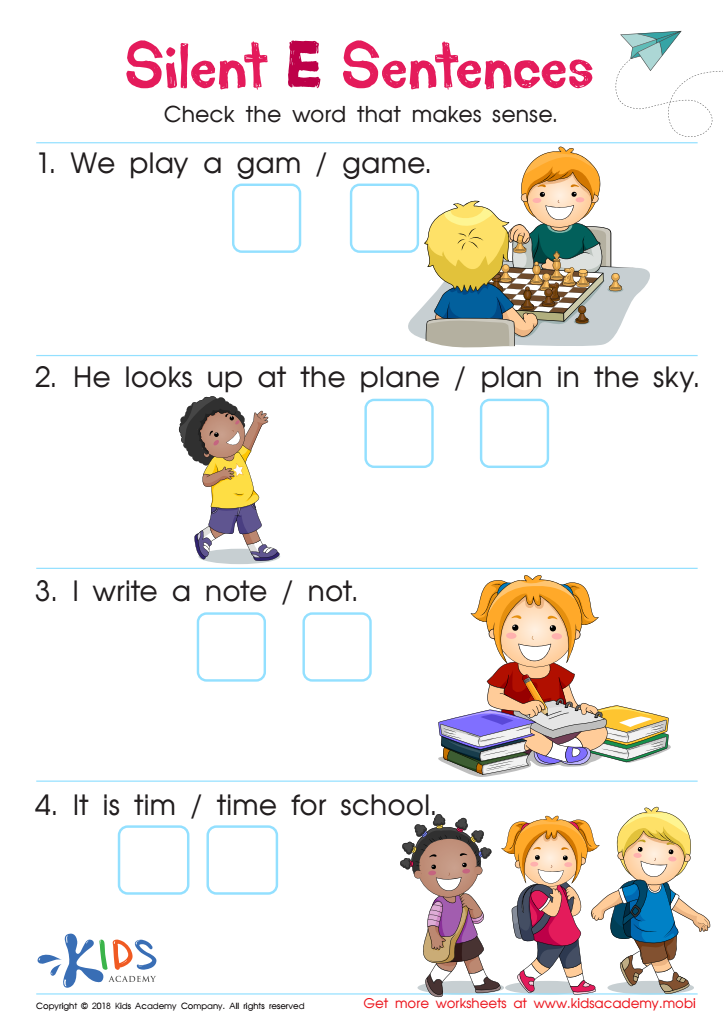

Silent E Sentences Worksheet


Long and Short U Worksheet
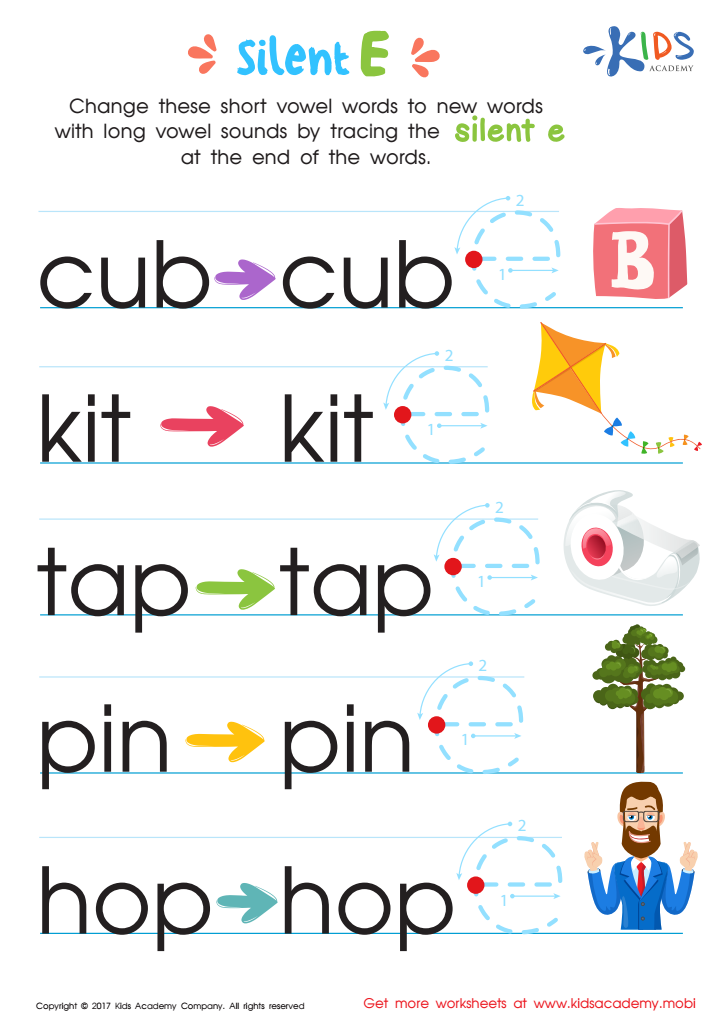

Silent E Words Worksheet
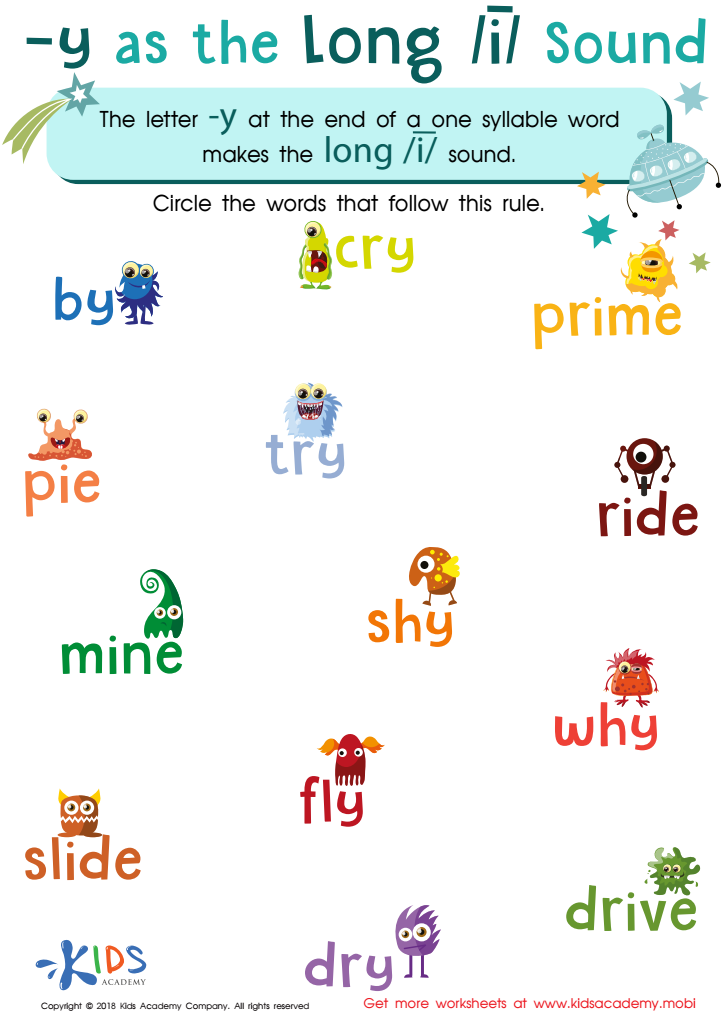

Reading: Y as Long I Worksheet
Phonics skills are foundational for young children’s reading and writing abilities. For 7-year-olds, these skills simplify the process of decoding words, which is essential for reading fluency. When children understand the relationship between letters and sounds, they can better identify and read new words independently. This boosts their confidence and fosters a love for reading.
Phonics instruction can also bridge the gap between spoken and written language. As children recognize how sounds in words map to letters, their spelling improves. This skill is crucial for written communication and enhances their overall ability to express ideas clearly.
Poor phonics skills can lead to reading difficulties, school frustration, and ultimately, a disadvantage in all academic areas since most subjects require reading comprehension. Strengthened phonics skills, therefore, set a strong educational foundation, enabling smoother progression through the school curriculum.
From a developmental perspective, mastering phonics supports cognitive growth, such as improving memory and auditory skills. On an emotional level, proficient reading fosters independence and reduces anxiety and kids. Both parents and teachers play vital roles in supporting phonics development — at home through reading activities and in school with targeted instruction. Thus, prioritizing phonics improvement secures a critical educational cornerstone for lifelong learning.
 Assign to My Students
Assign to My Students


















